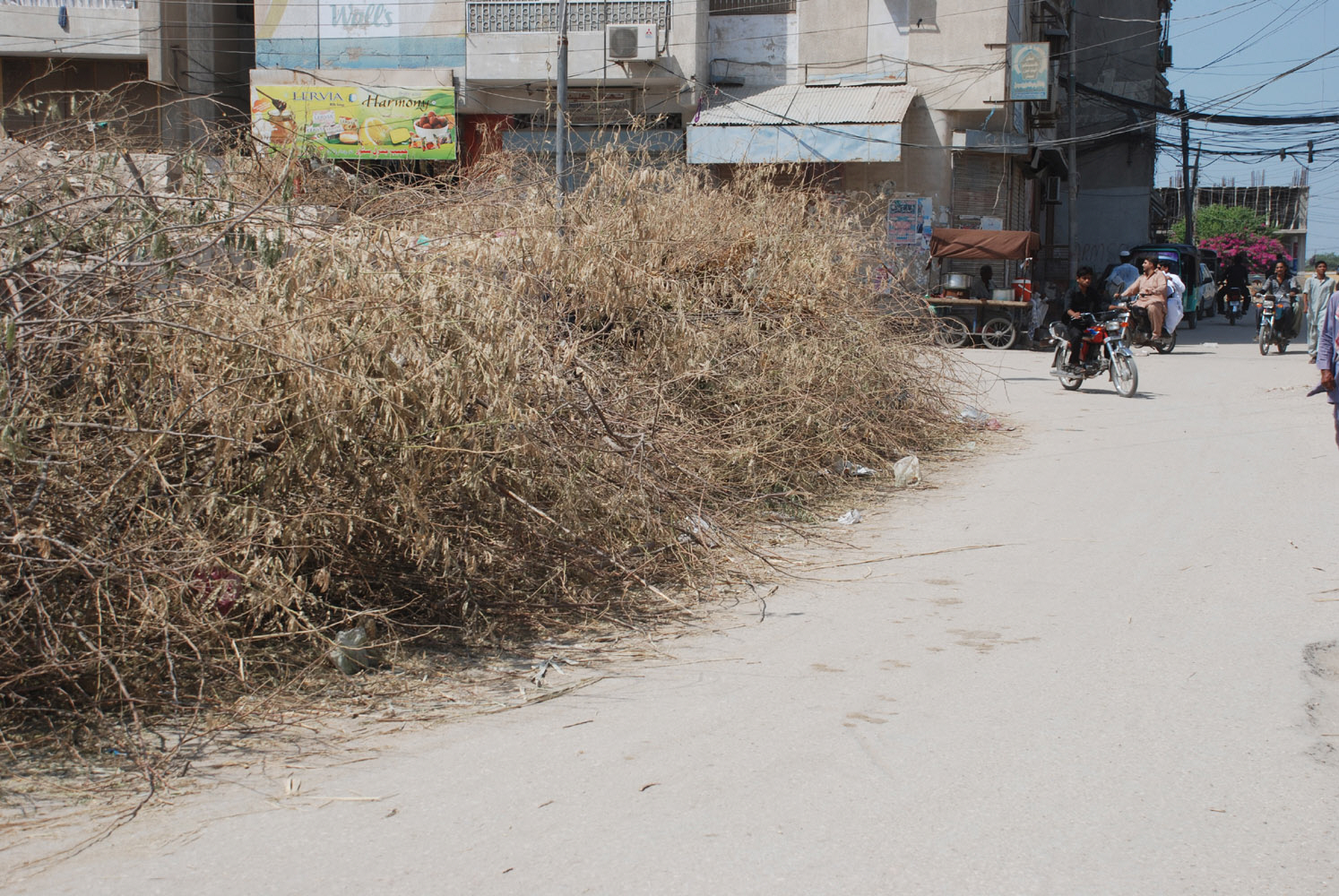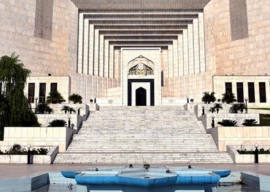
Once a flourishing locality, Sukkur’s most populous area has been reduced to little more than a garbage dump, lined with piles of debris with ponds of stagnant water having sprung up in many parts of the area.
“Yes, the elected representatives visit our area, but only when they need our votes,” remarked Yasin, an elderly resident of the area. Pointing towards the heaps of garbage and pools of stagnant water, he asked if the residents of New Pind were lesser human beings to have been forced to live their lives in these sordid conditions. “There is a lack of even the most basic civic amenities, including roads, sewerage system, sanitation system or even healthcare facilities,” he complained.

The only municipal dispensary in the vicinity had been closed since the last seven years, remarked Yasin, although the staff has been receiving their salaries and benefits all this time.
Meanwhile, the ponds of stagnant water have become breeding grounds for mosquitoes and other deadly insects. A resident of Gopang Muhalla, Ali Murad, explained that some of the colonies in the area were comparatively on higher ground which caused the sewerage and rain water to accumulate in the low lying areas.
The North Sindh Urban Services Corporation (NSUSC), on the other hand, has failed to take any effective steps to ensure the cleanliness of the locality. As far as the supply of potable water is concerned, New Pind’s residents are supplied with drinking water thrice a week. The water is mostly unfiltered and untreated and is another major source of water-borne diseases, Murad said.
Another resident, Riaz Ahmed, said that the Pakistan Peoples Party MNA Nauman Islam Shaikh had performed the ground-breaking ceremony of a park and a playground in New Pind in 2008. Despite the lapse of more than five years, only a boundary wall had been erected around it. According to him, the park’s land was currently being used as vehicles workshop by the NSUSC while the playground’s land had been converted into a charged parking area for rickshaws, cars and donkey carts. He further revealed that officials of the NSUSC, on the infrequent occasion when they visited the area, collected some of the garbage from the streets and later burned it in the middle of the locality, which caused toxic gases to exhume from the debris.
NSUSC media manager Adeel Shah told The Express Tribune that the body was facing a severe financial crunch due to which it had become difficult for them to meet these challenges. Shah was of the opinion that residents were equally responsible for the poor sanitary conditions as they did not bother to dump their waste at the specified sites.

He assured that they were trying to pump out the stagnant water. “No doubt we have failed to come up to the expectations of the citizens but we are trying our best,” he asserted.
Meanwhile, Sukkur Municipal Corporation commissioner Shujauddin Abbasi told The Express Tribune that upon getting the charge about a month and a half ago, he had found everything to be in shambles. On the closure of the only municipal dispensary, the official said that it may have been shut down due to shortage of staff. When informed that a doctor, two nurses, two dispensers, and other staff were posted at the dispensary and drawing the salaries regularly, he said he would look into the matter.
Published in The Express Tribune, October 1st, 2013.

















COMMENTS
Comments are moderated and generally will be posted if they are on-topic and not abusive.
For more information, please see our Comments FAQ